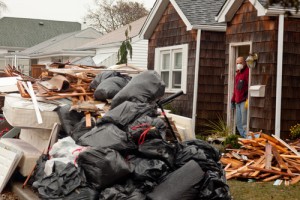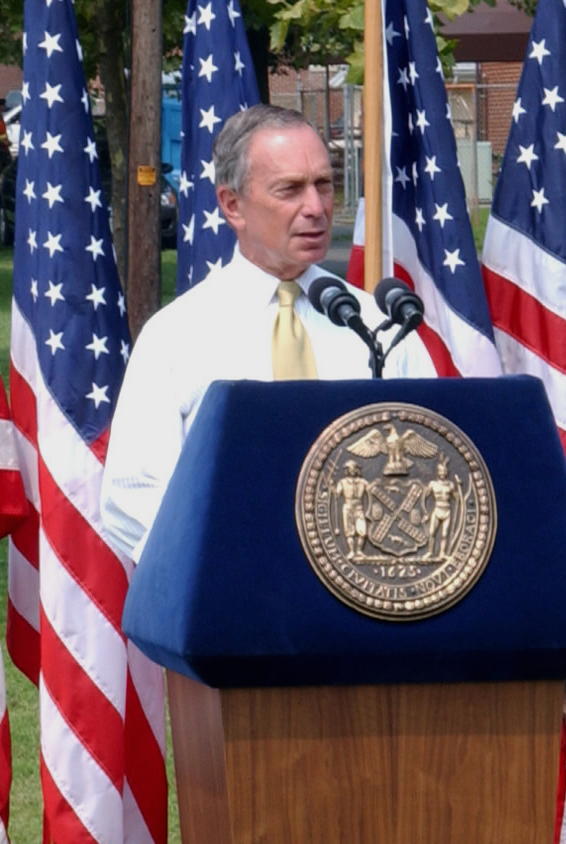Frances Beinecke, President of NRDC, New York City
One year ago, Superstorm Sandy ripped through the Northeast with unprecedented force. I still remember the harried calls to loved ones, the anxious waiting to hear from friends in harm’s way, and the heartbreak for those who lost so much. More than 159 Americans died in the storm, and 72,000 homes and businesses were damaged in New Jersey alone. The official price tag topped $65 billion, but people’s drained nest eggs and lost business may never be fully accounted for—or recovered.
Still, this is a resilient place, and many neighborhoods have rebounded and many leaders are trying to prepare our region for the next superstorm. This work is critical: climate change has made us vulnerable to higher storm surges, more frequent flooding, and other extreme events. We have to brace for this new reality, and NRDC recently outlined 10 steps to help get the job done.
Yet some leaders in Washington want to stand in the way of this work.
Coal industry lobbyists and House Republicans have chosen to spend the anniversary of Superstorm Sandy trying to block climate action and help the polluters who release the largest amount of global warming pollution in our nation.

Cleaning after Superstorm Sandy, Long Beach, New York. Photo: FEMA
GOP lawmakers have planned two hearings today to claim the coal industry shouldn’t be required to clean up its act. One hearing hosted by the House Science, Space and Technology Committee is expected to say the coal industry can’t innovate fast enough to reduce dangerous carbon pollution from power plants. We heard the same arguments from the auto industry over getting lead out of gasoline, from the chemical industry over phasing out CFCs, and from the utility industry over reducing acid rain. In each instance, American ingenuity came through and found cost-effective ways to reduce pollution. But some in the coal industry don’t want to be called on to modernize.
The House Energy and Commerce Subcommittee on Oversight and Investigations will host the second coal friendly hearing of the day on how carbon pollution standards would affect coal mining communities. The chairman of the subcommittee, Representative Tim Murphy (R-PA), is the same lawmaker who tried to prevent the government from including the benefits of climate action in cost benefit/analyses. In other words, when the agencies run the numbers for carbon standards, it would not be able to account for the savings from avoided medical costs or prevented property damage, if Murphy had his way.
Saying we shouldn’t calculate the benefits of addressing climate change is just another form of climate denial. And it is just one more form of obstruction.
Many of their proposed measures attack the Environmental Protection Agency head on.
Representative Ed Whitfield (R-KY), and Senator Joe Manchin (D-WVA) unveiled details of new bills on Monday that roll back proposed carbon standards for new power plants, block the EPA from setting standards for new coal plants that are any better than current uncontrolled levels, and force the EPA to get approval from Congress for any carbon limits for existing coal plants. This would rob the EPA of its ability to protect people and turn it instead into a rubber stamp for the coal industry.
While House GOP lawmakers have been putting polluters first, other leaders have been standing up for people. Today Representative Rush Holt (D-NJ) is holding a press conference featuring people impacted by Superstorm Sandy and calling for climate action. Mayor Michael Bloomberg and Governor Cuomo have spoken forcefully about the need to adapt to an altered climate. President Obama has released a bold climate plan and directed the EPA to set limits on carbon pollution from existing power plants. And just yesterday, the governments of California, Oregon, Washington, and British Columbia signed the new Pacific Coast Action Plan on Climate and Energy to reduce carbon pollution and promote low carbon energy resources.
This is the kind of leadership we need right now. Superstorm Sandy offered a vivid illustration of what extreme weather can do to our homes and neighborhoods. If we act now, we can help shield our families from the worst of unchecked climate change. We can build strong, resilient communities, and we can curb dangerous pollution. And we can honor those who suffered last year’s superstorm by creating a more sustainable future for our city, our region, and our country.
Related articles








